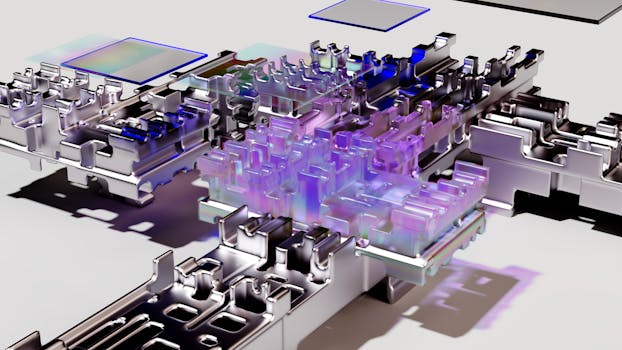+17162654855
+17162654855
DMV Publication News serves as an authoritative platform for delivering the latest industry updates, research insights, and significant developments across various sectors. Our news articles provide a comprehensive view of market trends, key findings, and groundbreaking initiatives, ensuring businesses and professionals stay ahead in a competitive landscape.
The News section on DMV Publication News highlights major industry events such as product launches, market expansions, mergers and acquisitions, financial reports, and strategic collaborations. This dedicated space allows businesses to gain valuable insights into evolving market dynamics, empowering them to make informed decisions.
At DMV Publication News, we cover a diverse range of industries, including Healthcare, Automotive, Utilities, Materials, Chemicals, Energy, Telecommunications, Technology, Financials, and Consumer Goods. Our mission is to ensure that professionals across these sectors have access to high-quality, data-driven news that shapes their industry’s future.
By featuring key industry updates and expert insights, DMV Publication News enhances brand visibility, credibility, and engagement for businesses worldwide. Whether it's the latest technological breakthrough or emerging market opportunities, our platform serves as a bridge between industry leaders, stakeholders, and decision-makers.
Stay informed with DMV Publication News – your trusted source for impactful industry news.
Information Technology

**
OpenAI CEO Sam Altman has made a significant reversal in his stance on the current state of AI hardware. In a recent interview and subsequent statements, Altman admitted that existing computer architectures are fundamentally inadequate for the demands of truly advanced artificial intelligence, a stark contrast to previous pronouncements suggesting current hardware could handle the task. This unexpected shift has sent ripples through the tech industry, raising critical questions about the future of AI development and the crucial need for specialized hardware.
Altman’s revised perspective highlights the limitations of conventional von Neumann architectures, the foundation of almost all modern computers. These architectures, characterized by a separation between processing and memory, create a significant bottleneck for AI applications. This bottleneck becomes particularly acute when dealing with large language models (LLMs) and other resource-intensive AI tasks.
This realization that current hardware is fundamentally insufficient is a significant departure from earlier optimistic predictions. Previously, Altman and other industry leaders had downplayed the need for specialized hardware, suggesting that software optimization alone could sufficiently address the growing computational needs of AI.
Altman's statement marks a decisive shift towards acknowledging the necessity of purpose-built hardware for AI. This isn't just about incremental improvements; it’s about a fundamental rethinking of computer architecture. The race to develop next-generation hardware tailored specifically for the demands of AI has intensified considerably.
These advancements aren't just theoretical; significant investments are pouring into research and development of these alternative architectures. Companies like Google, Intel, and NVIDIA are heavily involved in this race, pushing the boundaries of what's possible in AI hardware.
Altman's admission has far-reaching consequences for the future trajectory of AI development. It implies that progress might be slower than previously anticipated, as the industry now faces the considerable challenge of developing and deploying new hardware infrastructure.
The current situation presents both challenges and opportunities. The challenges are significant: developing and deploying new hardware at scale will require substantial resources and expertise. However, the opportunities are equally compelling: the potential for breakthroughs in AI capabilities fueled by specialized hardware is immense.
The future of AI depends on a collaborative effort between researchers, hardware manufacturers, and policymakers. Open collaboration, standardized interfaces, and clear regulatory frameworks will be essential to unlock the full potential of AI and ensure its responsible development.
Altman's revised perspective, while initially surprising, serves as a much-needed wake-up call. It underscores the limitations of relying solely on software optimization and highlights the urgent need for a paradigm shift in AI hardware. The race is on to build the next generation of computers, and those who successfully navigate this technological frontier will shape the future of artificial intelligence. The keywords – AI hardware, AI acceleration, large language models (LLMs), neuromorphic computing, quantum computing, GPU, TPU, von Neumann architecture, AI development, AI research, deep learning – will all play critical roles in the ongoing discussion and development.